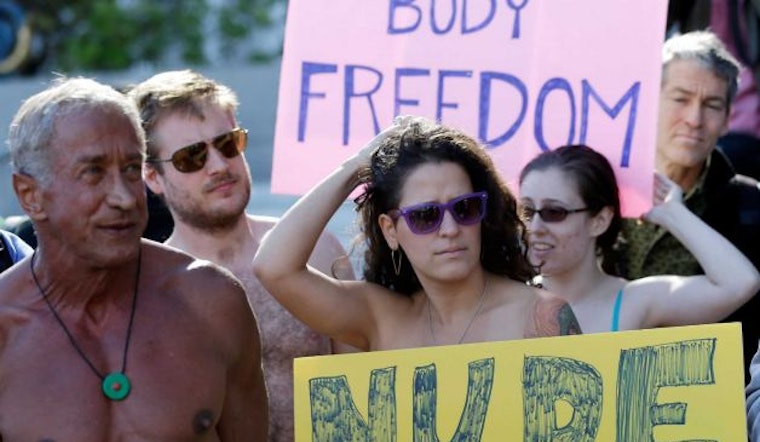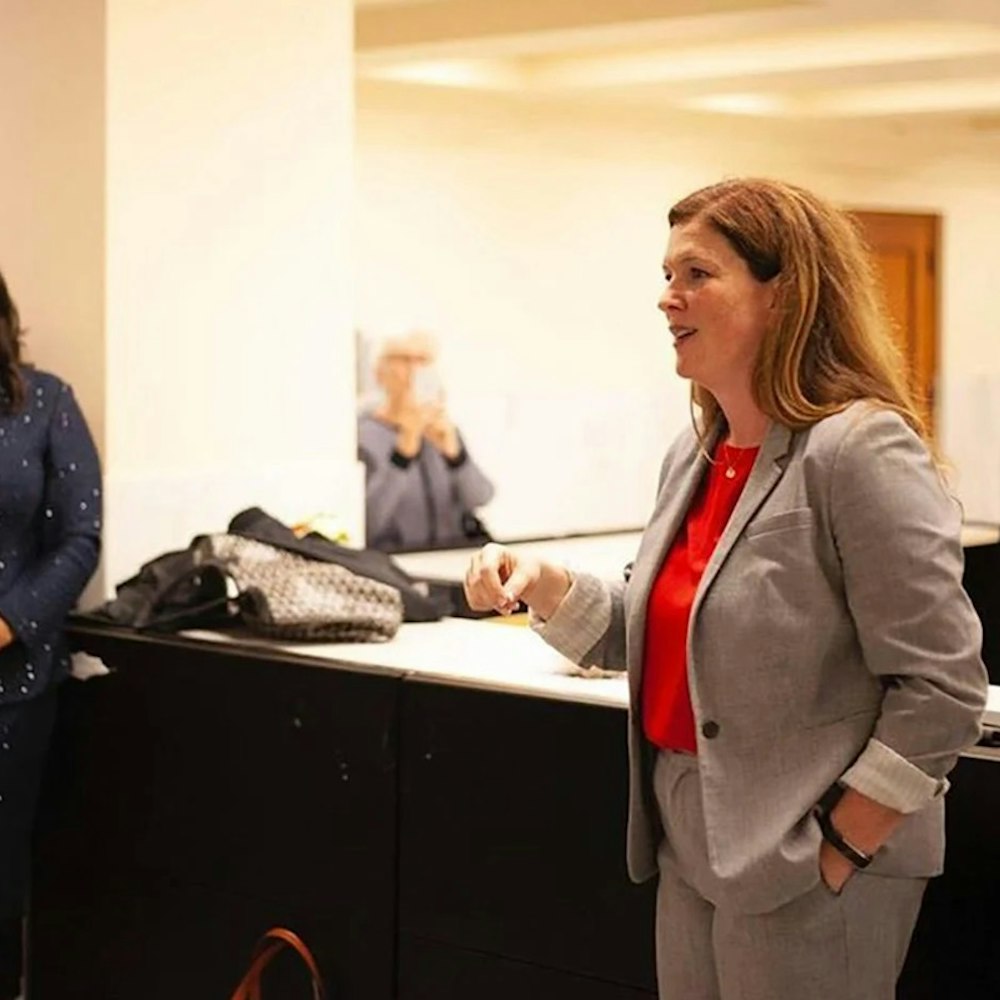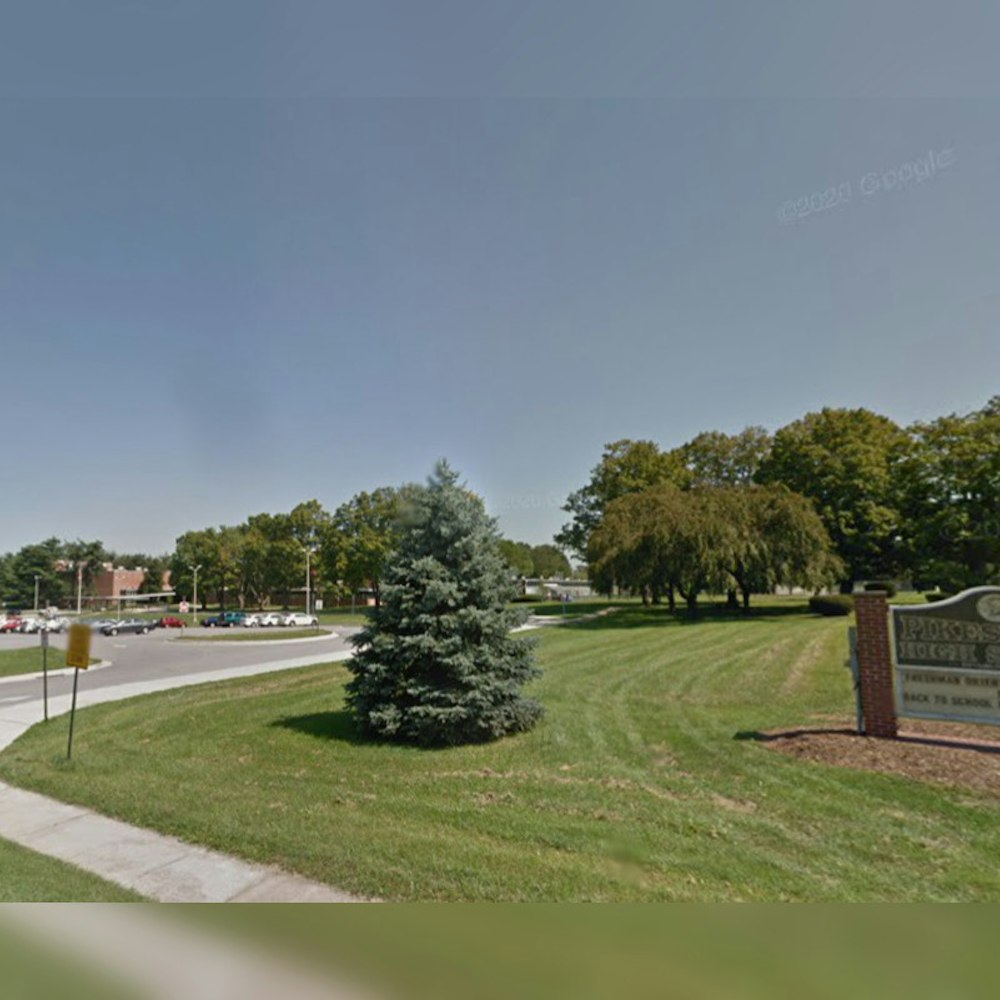
Though the nudity ban isn't officially a law yet, word comes this morning that
U.S. District Judge Edward M. Chen, with the United States District Court for the Northern District of California, has scheduled a hearing for January 17, 2013 to hear arguments if the new, San Francisco law sponsored by Sup. Scott Weiner violates the rights of our embattled, urban nudists.
Since the onset of the debate nudists have maintained that the ban violates their First Amendment right of self-expression and is making the City look more like Topeka and less like the beacon of open minded, forward thinking community that most in the world think San Francisco to be.
As we
posted earlier during the course of this winding debate that's polarizing the Castro and the community, San Francisco-based lawyer, Christina A. DiEdoardo, filed the class action lawsuit on behalf of four nudists claiming the proposed law violates their freedom of expression and the equal protection clause of the U.S. Constitution. Plaintiff in the lawsuit, Mitch Hightower, a gay man who organizes a yearly nude-in at Jane Warner Plaza in the Castro and owner/operator of an online porn site based on public nudity; Oxane "Gypsy" Taub, nudist television host from Berkeley; George Davis, former 'nude' SF mayoral candidate; and Russell Mills, web master of a pro nudity site. Ms. DiEdoardo has repeatedly been quoted by reporters, that her clients "are entitled" under the First Amendment to be nude in public as they are engaging in "expressive speech." The city cannot ban such speech, she said, merely because others are offended by seeing people nude.
The Board of Supervisors are expected to revisit the vote on the ban again in December, and if it passes, Mayor Ed Lee has promised to sign it into law. City Attorney Dennis Herrera, has branded the nudists' lawsuit baseless. The US Supreme court has reviewed two such cases previously and found that such bans do not violate individual rights to expression and local municipalities have the right to legislate against it. Both those cases however dealt with strip club nudity and the use of pasties vs. no pasties. Some would argue this case comes from a different perspective and is worth review.
DiEdoardo has also pointed out that there is still time for a compromise between the City and the plaintiffs. Compromise could be reached if the City worked with the nudist to find a better solution than another law that divides nudity into acceptable/unacceptable categories and wastes precious City resources of time and money battling the issue out in court. The idea of this happening seems highly unlikely at this point considering how rancorous the debate has become within City Hall, the full court press of the Merchants of Upper Market/Castro (MUMC) and some very influential and outspoken citizen's from the district who've had the luxury of Sup. Weiner's full attention.

 Though the nudity ban isn't officially a law yet, word comes this morning that U.S. District Judge Edward M. Chen, with the United States District Court for the Northern District of California, has scheduled a hearing for January 17, 2013 to hear arguments if the new, San Francisco law sponsored by Sup. Scott Weiner violates the rights of our embattled, urban nudists.
Since the onset of the debate nudists have maintained that the ban violates their First Amendment right of self-expression and is making the City look more like Topeka and less like the beacon of open minded, forward thinking community that most in the world think San Francisco to be.
As we posted earlier during the course of this winding debate that's polarizing the Castro and the community, San Francisco-based lawyer, Christina A. DiEdoardo, filed the class action lawsuit on behalf of four nudists claiming the proposed law violates their freedom of expression and the equal protection clause of the U.S. Constitution. Plaintiff in the lawsuit, Mitch Hightower, a gay man who organizes a yearly nude-in at Jane Warner Plaza in the Castro and owner/operator of an online porn site based on public nudity; Oxane "Gypsy" Taub, nudist television host from Berkeley; George Davis, former 'nude' SF mayoral candidate; and Russell Mills, web master of a pro nudity site. Ms. DiEdoardo has repeatedly been quoted by reporters, that her clients "are entitled" under the First Amendment to be nude in public as they are engaging in "expressive speech." The city cannot ban such speech, she said, merely because others are offended by seeing people nude.
The Board of Supervisors are expected to revisit the vote on the ban again in December, and if it passes, Mayor Ed Lee has promised to sign it into law. City Attorney Dennis Herrera, has branded the nudists' lawsuit baseless. The US Supreme court has reviewed two such cases previously and found that such bans do not violate individual rights to expression and local municipalities have the right to legislate against it. Both those cases however dealt with strip club nudity and the use of pasties vs. no pasties. Some would argue this case comes from a different perspective and is worth review.
DiEdoardo has also pointed out that there is still time for a compromise between the City and the plaintiffs. Compromise could be reached if the City worked with the nudist to find a better solution than another law that divides nudity into acceptable/unacceptable categories and wastes precious City resources of time and money battling the issue out in court. The idea of this happening seems highly unlikely at this point considering how rancorous the debate has become within City Hall, the full court press of the Merchants of Upper Market/Castro (MUMC) and some very influential and outspoken citizen's from the district who've had the luxury of Sup. Weiner's full attention.
Though the nudity ban isn't officially a law yet, word comes this morning that U.S. District Judge Edward M. Chen, with the United States District Court for the Northern District of California, has scheduled a hearing for January 17, 2013 to hear arguments if the new, San Francisco law sponsored by Sup. Scott Weiner violates the rights of our embattled, urban nudists.
Since the onset of the debate nudists have maintained that the ban violates their First Amendment right of self-expression and is making the City look more like Topeka and less like the beacon of open minded, forward thinking community that most in the world think San Francisco to be.
As we posted earlier during the course of this winding debate that's polarizing the Castro and the community, San Francisco-based lawyer, Christina A. DiEdoardo, filed the class action lawsuit on behalf of four nudists claiming the proposed law violates their freedom of expression and the equal protection clause of the U.S. Constitution. Plaintiff in the lawsuit, Mitch Hightower, a gay man who organizes a yearly nude-in at Jane Warner Plaza in the Castro and owner/operator of an online porn site based on public nudity; Oxane "Gypsy" Taub, nudist television host from Berkeley; George Davis, former 'nude' SF mayoral candidate; and Russell Mills, web master of a pro nudity site. Ms. DiEdoardo has repeatedly been quoted by reporters, that her clients "are entitled" under the First Amendment to be nude in public as they are engaging in "expressive speech." The city cannot ban such speech, she said, merely because others are offended by seeing people nude.
The Board of Supervisors are expected to revisit the vote on the ban again in December, and if it passes, Mayor Ed Lee has promised to sign it into law. City Attorney Dennis Herrera, has branded the nudists' lawsuit baseless. The US Supreme court has reviewed two such cases previously and found that such bans do not violate individual rights to expression and local municipalities have the right to legislate against it. Both those cases however dealt with strip club nudity and the use of pasties vs. no pasties. Some would argue this case comes from a different perspective and is worth review.
DiEdoardo has also pointed out that there is still time for a compromise between the City and the plaintiffs. Compromise could be reached if the City worked with the nudist to find a better solution than another law that divides nudity into acceptable/unacceptable categories and wastes precious City resources of time and money battling the issue out in court. The idea of this happening seems highly unlikely at this point considering how rancorous the debate has become within City Hall, the full court press of the Merchants of Upper Market/Castro (MUMC) and some very influential and outspoken citizen's from the district who've had the luxury of Sup. Weiner's full attention.


-1.webp?w=1000&h=1000&fit=crop&crop:edges)
-2.webp?w=1000&h=1000&fit=crop&crop:edges)




